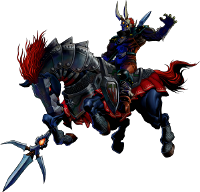The general format of a function definition is this:
The first bit can be ommited, the decorations & calling convention.Code:[decorations\calling-convention] [return data] [function name] ([argument 1], [argument 2], ... etc)
void IloveCpp(double fValue);
Defines a function that does not return anything (void) but takes a double value as an argument. The data in this situation is coppied over to the function. Generally, for small bits of data, this is acceptable. However, for larger structures you must use pointers or references.
void* IloveCpp(double fValue);
This function returns a pointer to any piece of data. A void pointer cannot be dereferenced. I.e you can not do this:
void pointers typically are used to store arbitrary pointers or references to regions of memory that cannot be effectivley described with a structure. Nowadays, there are a lot of tricky hacks you can pull off with meta-programming to get a structure to accurately describe a region of memory, so try to use a structure pointer wherever possible.Code:void* pReturn = IloveCpp(1.24); *pReturn = 25;
void ILoveCpp(double* pValue)
Describes a function which returns nothing, but takes a pointer to a double value. In C++ you would just use a reference here (if you haven't learned about references don't worry about it.) In this case, a pointer to a value is passed reather than copying the actual value over in to the function's context (much more optimal.)
It is also worth noting that you should not worry about returning structures. It varries with implementation by the comiler, but usually something like this:
MyLargeStructure createStructure(const char* sName);
turns in to something like this when optimized\implemented by the compiler:
void createStructure(const char* sName, MyLargeStructure* pReturn);
Thread: Basics of Pointers
Results 1 to 9 of 9
-
07-12-2012 #1
 Basics of Pointers
Basics of Pointers
#1.
Code:#include <iostream> using namespace std; void IloveC++(double *firstpointer) { *firstpointer=9.95; } int main() { double x=5.342; *secondpointer=&x; IloveC++(secondpointer); cin.get() system("pause") }
#2
My question is, what's exactly the difference between shoving in a pointer (*) between "void" and "IloveC++" , and shoving in a pointer (*) between "double" and "firstpointer"?Code:#include <iostream> using namespace std; void *IloveC++(double firstpointer) { *firstpointer=9.95; } int main() { double x=5.342; *secondpointer=&x; IloveC++(secondpointer); cin.get() system("pause") }
For a better understanding...
What is the difference between this:
...and this?Code:void *IloveC++(double firstpointer)
@giniyat101 specially ;pCode:void IloveC++(double *firstpointer)
---------- Post added at 07:05 PM ---------- Previous post was at 07:04 PM ----------
EDIT: Okay forget the "system("pause")" thing I made a mistake lol.
-
07-13-2012 #2

There are two types of tragedies in life. One is not getting what you want, the other is getting it.
If you wake up at a different time in a different place, could you wake up as a different person?
-
The Following User Says Thank You to radnomguywfq3 For This Useful Post:
Hassan (07-16-2012)
-
07-13-2012 #3Hung like a rabbit



- Join Date
- Apr 2010
- Gender

- Location
- Posts
- 5,704
- Reputation
 918
918- Thanks
- 7,676
- My Mood
-

You can win the rat race, Originally Posted by Jeremy S. Anderson
Originally Posted by Jeremy S. Anderson
But you're still nothing but a fucking RAT.
++Latest Projects++
[Open Source] Injection Library
Simple PE Cipher
FilthyHooker - Simple Hooking Class
CLR Injector - Inject .NET dlls with ease
Simple Injection - An in-depth look
MPGH's .NET SDK
eJect - Simple Injector
Basic PE Explorer (BETA)
-
07-13-2012 #4Your function requires a pointer, but you do not necessarily have to create a pointer to pass an address to the function, although sometimes it is beneficial to do so.Code:
#include <iostream> using namespace std; void IloveC++(double *firstpointer) { *firstpointer=9.95; } int main() { double x=5.342; *secondpointer=&x; IloveC++(secondpointer); cin.get() system("pause") }
Example:
Just a little bit of extra info I thought I would put in there for you.Code:IloveC++(&x); // Here we are directly passing the address of 'x' to the function.
-
07-13-2012 #5
 Threadstarter
Threadstarter#Obey 

- Join Date
- Dec 2011
- Gender

- Location
- Posts
- 6,771
- Reputation
 125
125- Thanks
- 714
- My Mood
-

Well I do understand what "void" does and I just wanted to try something I haven't for my history of coding.
So basically to say, if you shove in the pointer (*) in the function value, it only recognizes the exact value which it is pointing to, in this case, only 1, and if you shove it in at the function type, then it recognize every value that's within that function?
Sorry I'm kind of confused here. Or maybe I should just move on to learning Classes and Struct variables.
---------- Post added at 12:32 PM ---------- Previous post was at 12:31 PM ----------
I know, I just wanted to practice some pointers and functions altogether.
-
07-14-2012 #6
A float pointer holds the address of any given float variable.
You can get the address of any accessible variable in memory by using the '&' token.
I.e
float myFloat = 2.0F
then you can store the address of the float:
float* pMyFloat = &myFloat;
pMyFloat is a pointer to myFloat. It contains the address of myFloat in memory, not the value of myFloat.
You can dereference a pointer by using the dereference operator (*)
float myFloatsValue = *pMyFloat.
It works the same way with function arguments.
I don't fully understand your question, but I think this is what you're asking?
There are two types of tragedies in life. One is not getting what you want, the other is getting it.
If you wake up at a different time in a different place, could you wake up as a different person?
-
The Following User Says Thank You to radnomguywfq3 For This Useful Post:
Hassan (07-16-2012)
-
07-15-2012 #7
 Threadstarter
Threadstarter#Obey 

- Join Date
- Dec 2011
- Gender

- Location
- Posts
- 6,771
- Reputation
 125
125- Thanks
- 714
- My Mood
-

:s I don't really understand this.
Well I'm only on part 2 I have much more to go on pointers. I'll have a look at that first.
For now, close @Hassan
-
07-15-2012 #8
i didnt receive the mention :S
may i didnt notice
i think Jetamay already helped![=]](images/emotions/=].gif)

[img]https://i43.photobucke*****m/albums/e367/DeteSting/Steam-update.gif[/img]
-
07-16-2012 #9
Marked Solved. Jetamay answered it pretty well.

Similar Threads
-
[Release] Some Basic Offsets + Pointers
By Swag in forum CrossFire Europe Hack Source CodeReplies: 5Last Post: 01-08-2012, 02:00 AM -
[Release] Weapon Mgr, Player Pointer, Basic Player Info
By Ryuesi in forum CrossFire Hack Coding / Programming / Source CodeReplies: 12Last Post: 11-10-2011, 12:59 PM -
[Help] Inserting Pointers into Visual Basic 2010
By zolferno in forum Visual Basic ProgrammingReplies: 6Last Post: 08-14-2011, 06:40 AM -
Basic Signature
By Chronologix in forum TutorialsReplies: 68Last Post: 09-25-2007, 12:33 AM -
Any Got Visual Basic Swim in air Pointer and No recoil and No spread??
By Redbull in forum WarRock - International HacksReplies: 0Last Post: 08-26-2007, 04:53 AM


 General
General



 Reply With Quote
Reply With Quote











